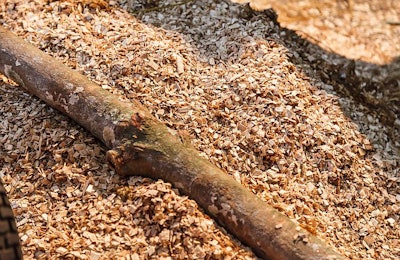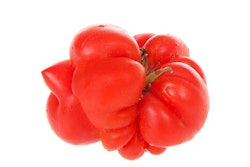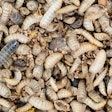
Using timber industry residues to make pet food and livestock feed may benefit the economy and the environment, similarly to buying farmers’ misfit fruit to make upcycled dog treats. One company, Arbiom, specializes in using a specific variety of yeast to digest wood. Those torula yeast (Cyberlindnera jadinii) feed on woody biomass left as waste or residues from wood product production. Protein from that yeast performed well in feeding trials with fish performed by Arbiom using their product SylPro.
“The recent, successful aquaculture trials of SylPro represent a significant step in the product’s path toward commercialization,” Ricardo Ekmay, PhD, vice president of nutrition for Arbiom, told Petfood Industry in an email. “As we continue on this path, Arbiom anticipates the product’s value extending far beyond aquaculture and into a range of different feed applications, including pet feed, and we have already begun evaluations in this area.”
Protein from wood presentation at Petfood Forum
At Petfood Forum, Ekmay presented on Arbiom’s work with torula yeast and how it may enter the pet food ingredient supply chain.
Wood-eating torula have several things going for them as a sustainable, novel protein source, he said. Wood is abundant, renewable and doesn’t compete with human food crops. The waste wood comes from an industry with strong, existing supply chains that produce large amounts of residue material.
Torula yeast has excellent handling and extrusion properties as well, he said. Functional fibers in the yeast may benefit digestive system health. Torula doesn’t contain allergens or heavy metals, while providing amino acids.
Petfood Forum
To learn more about novel pet food proteins and many other aspects of the pet food industry attend Petfood Forum. Petfood Forum is a premiere trade show for pet food professionals from around the world to network, exchange ideas and do business with one another and with the industry's leading pet food manufacturers and suppliers. Related events occur around the world, including:
















